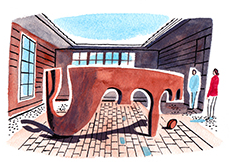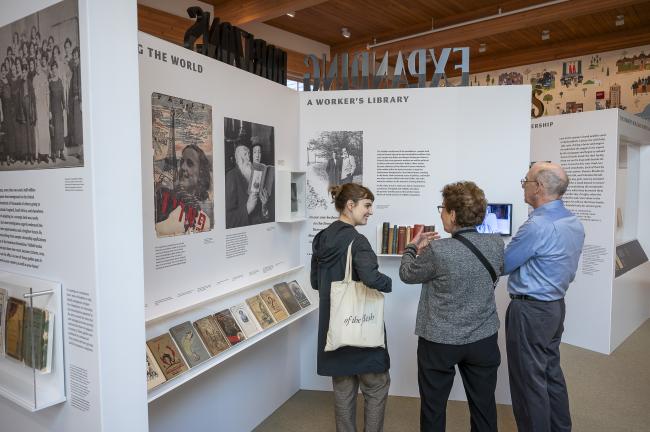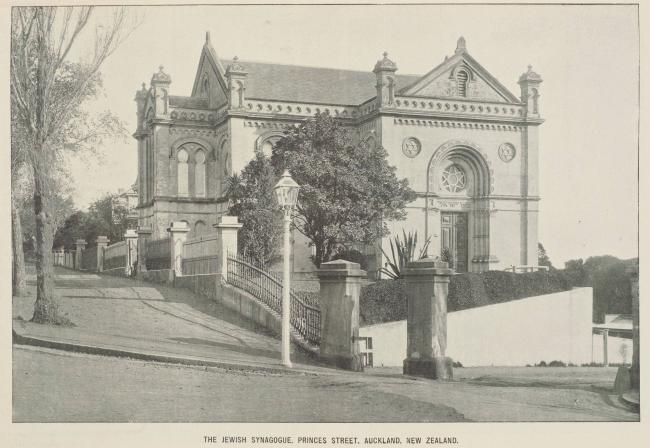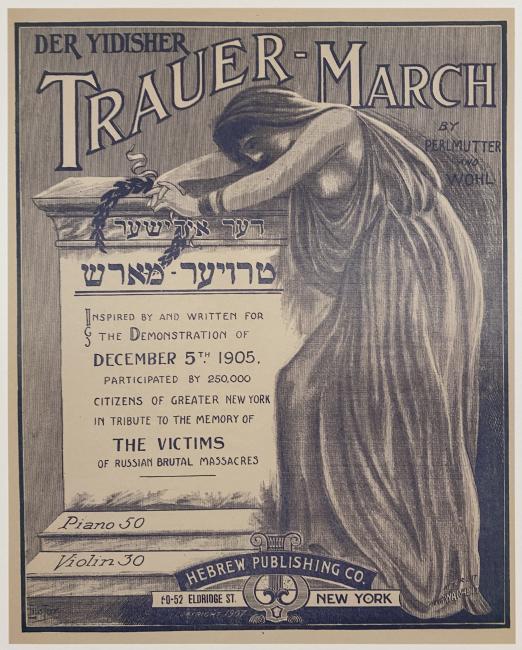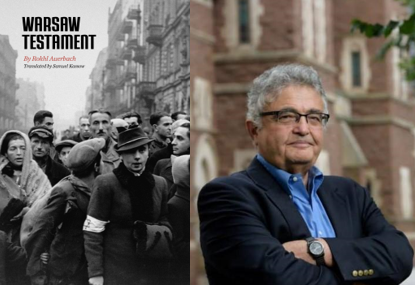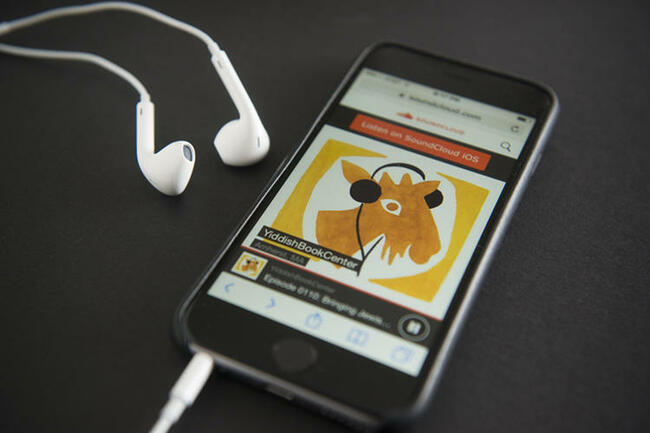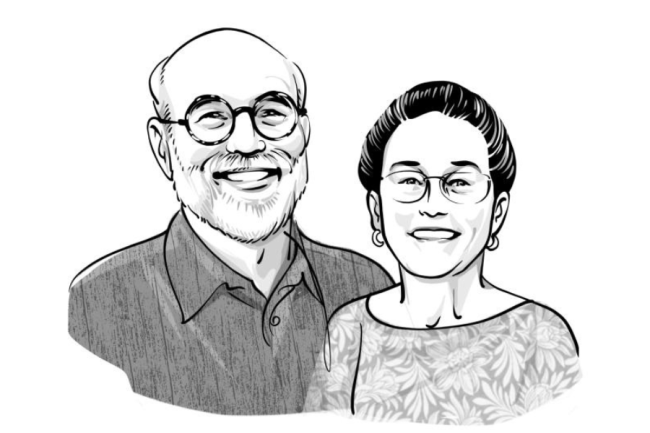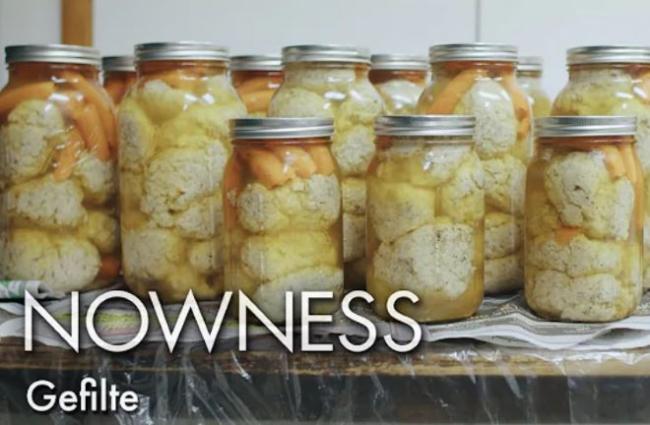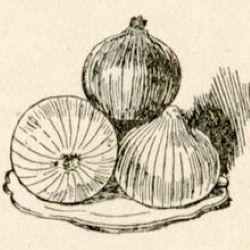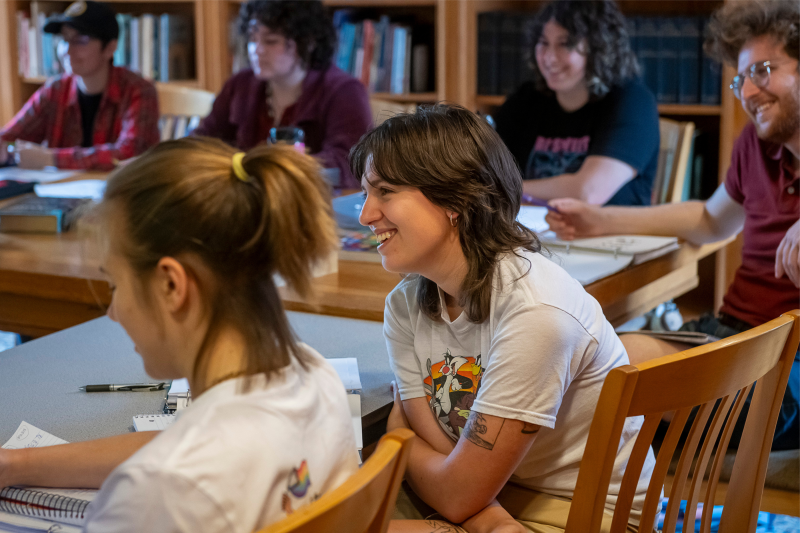
Yiddish Book Center
Celebrating Yiddish Language & Culture
Scroll down
פֿרישע נײַעס Now
ON VIEW | Yiddish: A Global Culture
“New Zealand,” by Peretz Hirschbein, translated by Ryan Mendias
From the Vault | Together in Mournful Protest
2024 Melinda Rosenblatt Lecture | Rokhl Auerbach’s Warsaw Testament, with Samuel Kassow | Sunday, May 5 @ 2:00 p.m. ET, at the Yiddish Book Center & livestreamed
The Shmooze | in a dark blue night: two song cycles on Yiddish/Jewish New York
Donor Profile: Elizabeth Short, MD and Michael Friedman, MD
Support Yiddish Culture!
Your donation will help safeguard our books and support Yiddish literature and culture for future generations.
Focus On Passover Food
Necessity, they say, is the mother of invention. To put it another way, sometimes constraints spur the greatest creativity. That seems to be true with regard to Passover—and specifically to Passover food. There are no greater dietary restrictions in Judaism than those observed on Passover, when, in addition to the regular laws of kashrut, it’s also forbidden to eat any leavened food. But anyone who has been to a Passover seder can tell you that such restrictions only seem to bring out the best in Jewish cooks. In celebration of the upcoming holiday, which begins tomorrow evening, we’re revisiting this 2022 Weekly Reader which highlighted the many tasty dishes to look forward to throughout peysekh.
אויסגעקליבן Handpicked Elizabeth Cardaropoli
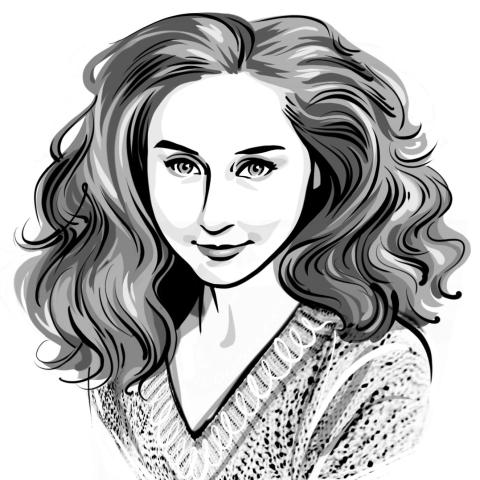
Each month, the Yiddish Book Center asks a member of our staff or a friend to select favorite stories, books, interviews, or articles from our online collections. This month, we’re excited to share with you picks by Elizabeth Cardaropoli, the Yiddish Book Center’s Associate Director of Visitor Services and Public Programs Manager
Leonard Nimoy’s Oral History
As a Star Trek fan with a personal history as a theatre artist, it seemed most appropriate to make mention of our moving oral history interview with the late, great Leonard Nimoy. I enjoy his rendition of Hamlet’s “To be or not to be,” but what I find most poignant was his description of the Boston West End neighborhood of his youth (now lost to urban renewal projects) and his relationship to his parents and grandparents within that community that defined his connection to his Jewish heritage, the Yiddish language, and ultimately his life as an actor.
Diary of a Squirrel
I am an animal lover, and it seems author and translator Sonye (Sonya/Sonia) Kantor was as well. She wrote and translated exclusively children’s animal stories in the 1920s. Her 1920 story Togbukh fun a veverke (Diary of a Squirrel) is a captivating tale that documents the seasonal changes in a year in the life of a squirrel in interwar Poland. Her work imagines the inner life of this little creature and how he relates to the world around him. I, too, wonder quite a bit about what my cat is thinking or about the lives of the squirrels in the tree outside my front door.
Who Is Guilty? Radiocast
Sarah B. Smith was a newspaper journalist and crime writer for Der tog (The Day), where she profiled the goings-on in New York City’s courtrooms through her series Ṿer iz shuldig? (Who Is Guilty?), which was compiled into a book in 1919. Over a hundred years later, I found myself producing a radiocast version of selections of this episodic series. Smith’s searing yet sympathetic voice distilled the hardships and hurdles of New Yorkers during the most desperate moments of their lives as they faced judgment and justice in the crowded courtrooms of the early 20th century. Ever present, raw, and realistic, her stories resonate with our curiosities in the chaos of the human experience.
Shakespeare and Yiddish
Before my career shifted into history and museum work, I was trained as a classical performer. From a young age, I adored performing Shakespeare: his poetry is kinetic, and his characters are at once so human and larger than life. Shakespeare means many different things for many different people: from “prolific” to “problematic,” from an eyeroll-inducing checkpoint on their reading syllabus to the greatest of English poets. However, the Bard of Avon has endured for over 400 years, and he found his way into the world of Yiddish theater. Ilan Stavans’ intriguing and informative talk reflects on how Shakespeare was used a “litmus test” in Yiddish theater for performers and translators cutting their teeth in show business and how Shakespeare was translated for the Yiddish stage.
Stay up to Date!
Sign up to receive Yiddish Book Center news, podcasts, features, and oral histories right to your inbox.

